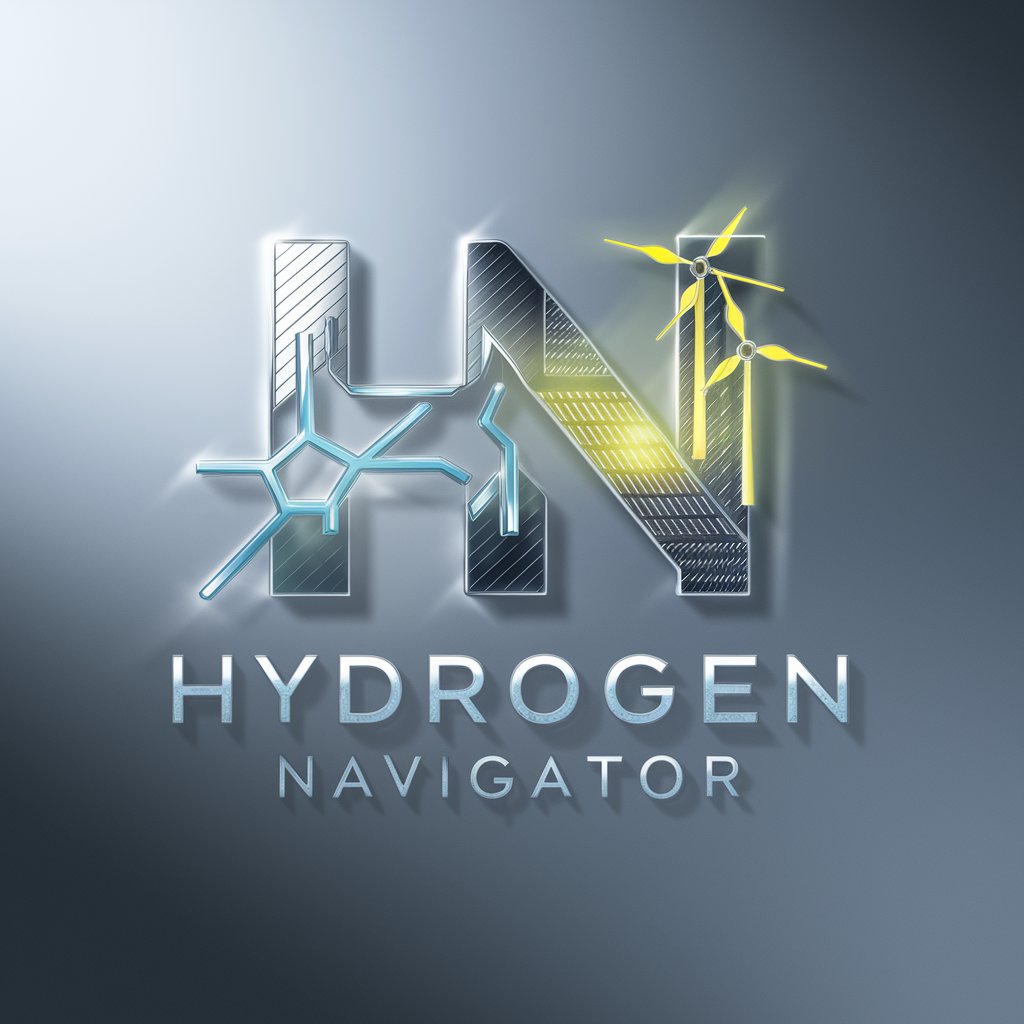
Sabio de Motores de Hidrógeno - Hydrogen Engine Insights

Hello! Ready to explore the world of hydrogen engines?
Powering the Future with Hydrogen
Can you explain how hydrogen engines work compared to traditional combustion engines?
What are the main environmental benefits of using hydrogen engines?
What are the current challenges in the adoption of hydrogen engines?
How do hydrogen engines compare to electric engines in terms of efficiency and sustainability?
Get Embed Code
Introduction to Sabio de Motores de Hidrógeno
Sabio de Motores de Hidrógeno is a specialized AI designed to provide expert knowledge on hydrogen engines, including their design, functionality, benefits, and challenges. Created to assist users in navigating the complexities of hydrogen technology, it serves as a comprehensive guide for understanding how hydrogen engines operate, their environmental impact, safety considerations, and the latest advancements in the field. Through detailed explanations, comparisons with traditional combustion engines and electric motors, Sabio de Motores de Hidrógeno aims to educate and inform users about the potential and practicalities of hydrogen as a fuel source. Examples of its utility include explaining the mechanics of hydrogen fuel cells, the efficiency of hydrogen combustion engines, and strategies for hydrogen storage and distribution. Powered by ChatGPT-4o。

Main Functions of Sabio de Motores de Hidrógeno
Educational Resource
Example
Explaining the principles of hydrogen fuel cell technology
Scenario
A student working on a renewable energy project seeks to understand how hydrogen fuel cells generate electricity. Sabio de Motores de Hidrógeno provides a detailed explanation of the electrochemical process, including diagrams and real-world applications in transportation and stationary power generation.
Comparative Analysis
Example
Comparing hydrogen engines to electric and combustion engines
Scenario
An automotive engineer is considering the best powertrain for a new environmentally friendly vehicle. Sabio de Motores de Hidrógeno offers a comprehensive comparison, highlighting hydrogen engines' efficiency, emissions, and refueling times compared to electric batteries and traditional gasoline engines.
Safety Guidelines
Example
Providing safety measures for handling and storing hydrogen
Scenario
A company plans to implement hydrogen fueling stations. Sabio de Motores de Hidrógeno outlines necessary safety protocols, including leak detection, ventilation systems, and emergency response strategies, ensuring safe operation and maintenance.
Environmental Impact Assessment
Example
Analyzing the lifecycle emissions of hydrogen vehicles
Scenario
Environmental policymakers need to assess the overall impact of adopting hydrogen vehicles on a large scale. Sabio de Motores de Hidrógeno evaluates the entire lifecycle of hydrogen production, distribution, and use, offering insights into greenhouse gas emissions and potential environmental benefits.
Ideal Users of Sabio de Motores de Hidrógeno Services
Students and Educators
Individuals in academic settings looking to deepen their understanding of hydrogen technology, its applications, and environmental implications. They benefit from detailed explanations, diagrams, and real-world scenarios that facilitate learning and research.
Engineers and Technologists
Professionals in the fields of automotive, energy, and environmental technology seeking technical knowledge on designing, implementing, or improving hydrogen-based systems. They value comparative analyses, safety guidelines, and environmental impact assessments to inform decision-making.
Policy Makers and Environmental Advocates
Individuals involved in creating or advocating for policies related to renewable energy and environmental protection. They utilize Sabio de Motores de Hidrógeno for evidence-based information on the benefits and challenges of hydrogen energy, helping to shape effective and sustainable policies.

How to Use Sabio de Motores de Hidrógeno
Begin Your Journey
Access a comprehensive hydrogen engine resource without the need for ChatGPT Plus by visiting yeschat.ai for a hassle-free trial.
Identify Your Needs
Consider what you need to know: design specifics, operational principles, environmental impact, safety protocols, or technological advancements in hydrogen engines.
Ask Precise Questions
Formulate detailed inquiries to receive in-depth explanations, comparisons, and insights into hydrogen engines and their applications.
Utilize Feedback
Engage with the provided information and ask follow-up questions or request clarifications to deepen your understanding.
Apply Knowledge
Use the insights gained to inform academic research, industry projects, or personal interest explorations in the field of hydrogen engines.
Try other advanced and practical GPTs
Critical Minerals Maven
Empowering clean energy with AI-driven mineral intelligence

Эксперт по БАДам
Empowering Supplement Wisdom with AI

LE GOAT DU SITE WEB
Optimize Your Website with AI-Powered Insights

Sociologie
Unravel Sociological Theories with AI

Coach L'Encanaillerie
Empowering Tattoo Studios with AI-Driven Marketing

Battle Map Generator
Craft Your World with AI-Powered Maps

中文chatGPT
Empowering Chinese communication with AI

晨风
Bringing Characters to Life with AI
Buscador de Eventos en Ciudades Seleccionadas
Discover, Plan, Promote: AI-Powered Event Finding

画家风格提示大师
Empower your art with AI-driven style insights.

BusinessTailor
AI-powered Business Matchmaking

Play Store Gratis
Unlocking a World of Free Apps

Detailed Q&A on Sabio de Motores de Hidrógeno
What distinguishes hydrogen engines from traditional combustion engines?
Hydrogen engines combust hydrogen fuel, emitting water vapor as the primary byproduct, unlike traditional engines that burn fossil fuels, producing CO2. This fundamental difference results in cleaner emissions, aligning with environmental sustainability goals. However, hydrogen engines face challenges such as hydrogen production and storage.
How do hydrogen engines contribute to environmental sustainability?
By utilizing hydrogen, a clean fuel, hydrogen engines emit minimal greenhouse gases compared to conventional engines. This transition to hydrogen fuel can significantly reduce air pollution and dependency on fossil fuels, contributing to a reduction in global warming and improving air quality.
What are the main challenges in adopting hydrogen engines widely?
Key challenges include the high cost and energy intensity of hydrogen production, storage and transport issues due to hydrogen's low density, and the need for extensive infrastructure development for hydrogen fueling stations. Advances in technology and economies of scale are critical for overcoming these obstacles.
Can hydrogen engines be used in all types of vehicles?
Hydrogen engines are versatile and can power a range of vehicles from cars to buses and trucks. However, their widespread adoption is currently limited by factors such as fuel infrastructure and vehicle cost. Ongoing research aims to address these challenges, making hydrogen engines more accessible for various vehicle types.
How do safety measures for hydrogen engines compare to those for traditional fuel engines?
Hydrogen engines require stringent safety measures due to hydrogen's high flammability and diffusivity. These include leak detection systems, high-pressure tanks designed to withstand impacts, and safety protocols for fueling. Despite these concerns, hydrogen's rapid dispersal in air can reduce the risk of prolonged fires compared to liquid fuels.





